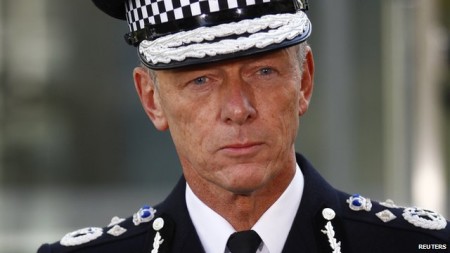The Met’s Police Commissioner, has admitted this week that the whole of the UK is institutionally racist, in a documentary about Scotland Yard.
Sir Bernard Hogan-Howe, who became Police Commissioner in September 2011 following the London Riots, stated in the documentary that young black men are more likely to be stopped and searched.
“You’re very much more likely to be stopped and searched if you’re a young black man,” he said. “I can give you reasons, but I can’t fully explain it.”
Hogan-Howe’s comments come a year after the Chief of the Black Police Association, Janet Hills, said that things have not improved since Stephen Lawrence’s case and the Macpherson Report, which was first published in 1999. It was this very report that first brought to light the issue of institutional racism within the Met Police force and described institutional racism as “the collective failure of an organisation to provide an appropriate and professional service to people because of their colour, culture or ethnic origin”.
15 years after the Macpherson report, the Ellis Report was published, highlighting the failings of the Met Police in Stephen Lawrence’s murder.
While Sir Hogan-Howe admits that his police force has a long way to go in terms of tackling institutional racism, he also added that British society, not just the police force, is institutionally racist.
“I think society is institutionally racist,” he said. “You see lack of representation in many fields of which the police are one, from judges, to doctors, to journalists, to editors, to governments.”
Allegations of institutional racism have sparked unrest across the country on several occasions, most notably, the shooting of 29 year-old Mark Duggan, who was killed by police in 2011 and whose death sparked the now infamous 2011 riots.
The documentary, titled The Met: Policing London, follows a black police officer who was instated in Haringey where Duggan was killed, soon after the incident.
The five part documentary aired on June 8th.











